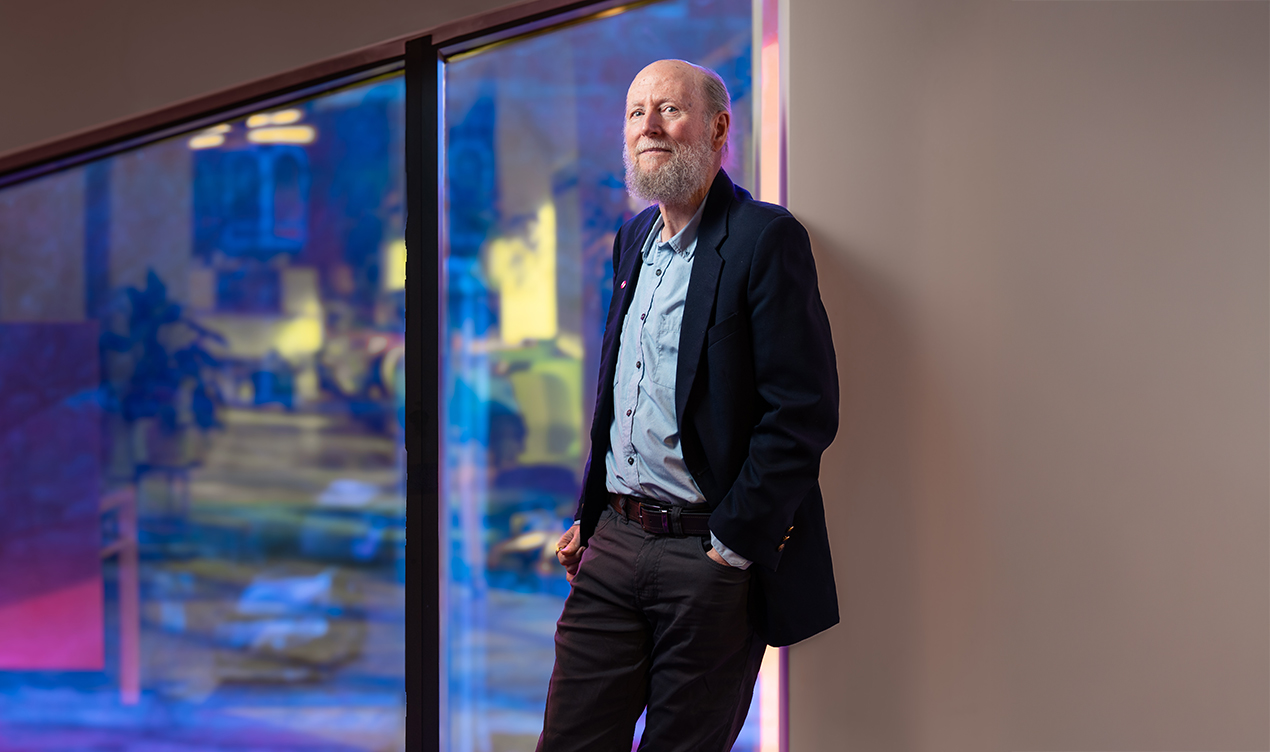In 2018, we featured the University of Alberta’s, world-renowned AI research group, led by research scientist Richard Sutton, who left us with this quote about the distinction between human and “artificial” intelligence. For our own benefit, he said, “There shouldn’t even be a distinction, it should just be one topic: the science of mind, whether artificial or natural. It will eventually all converge.”
When I show him this quote at a press conference seven years later, he quietly admits, “That was well said.”
We’re at the Alberta Machine Intelligence Institute (Amii), where Sutton is a fellow and chief scientific adviser, and the press conference is to announce Sutton (and long-time collaborator Andrew Barto) receiving the Alan M. Turing Award from the Association of Computing Machinery. The award — which comes with $1 million — is often referred to as the Nobel Prize in computing and Sutton won it for his decades-long, fundamental work in developing the AI field of reinforcement learning, which takes a trial-and-error approach to a desirable outcome.
That outcome has shifted, and possibly profoundly. In 2018, the breakthroughs were in gaming (Sutton’s U of A team’s research contributed to AI beating checkers, chess and the Chinese board game Go). Today, they’re in AI-generated software like ChatGPT and Midjourney that’s been finely tuned by reinforcement learning.
The Father of Reinforcement Learning
Many of the biggest AI advancements are directly tied to the work of the Ohio-born researcher, who moved to Canada in 2003. While introducing Sutton at the press conference, Amii CEO Cam Linke mentions these and other “Sputnik moments” from around the world (like DeepSeek’s chatbot, in China), and the proliferation of local startups (RL Core, Artificial Agency) that have relied upon Sutton’s AI research in some way.
“Rich has been an incredible mentor to both his students and his community,” Linke says. “That inspiration, I think, is one of the reasons we’re seeing reinforcement learning take off today.”
